Tara Suri is the Marie Claire and United Nations Population Fund winner of the fifth annual Americans for UNFPA Student Award for the Health and Dignity of Women. Tara is blogging directly from her weeklong visit to Sierra Leone.
Today – after an epic 19 hours of planes, a jaunt on a bus, a trip on a plaid-seated ferry, and a bumpy car ride – we finally hit the ground running.
For these next few days, we're in Freetown, the capital of Sierra Leone. Nestled in the hills and overlooking the ocean, the city is unabashedly paradoxical. Neon flowers illuminate dusty roads. Bright dresses stand out against crumbling homes. Imperialism (streets are named 'Wilberforce' and hospitals 'Connaught'), nationalism (proud signs celebrate the 50th anniversary of the nation's independence), and globalization (I saw a man strutting along in Crocs) duke it out on the streets. Shiny cars cut through teems of impoverished people.
Yet while the poverty is unavoidable, today's experiences were less about devastation and more about possibility.
A few highlights from today's schedule: meeting with the staff of Sierra Leone's UNFPA Office in the morning; a lunchtime audience with First Lady Koroma; a long chat with Juliana Konteh, Executive Director of the Women in Crisis Movement and Americans for UNFPA's 2011 International Honoree.
Listed that way, these three meetings may seem disparate and unrelated, but it is quite the opposite. Indeed, my discussions today highlighted the complex and interdependent web of change-making efforts undertaken by UNFPA, the First Lady, and Juliana. To start, UNFPA funds a range of projects related to women's health, like Juliana's organization and also implements various programs, including a partnership with the First Lady combating maternal mortality and associated challenges. Around the globe, nearly 1,000 women die each day from maternal-health related causes that are entirely preventable; Sierra Leone has some of the worst rates in the world, yet actors like UNFPA and the First Lady are working to change that.
In turn, First Lady Koroma has not only supported and championed UNFPA, she has also helped facilitate the nation's adoption of free health care for pregnant women and children under five, which has benefited the women in Juliana's programs.
Stay In The Know
Marie Claire email subscribers get intel on fashion and beauty trends, hot-off-the-press celebrity news, and more. Sign up here.
Completing the web, Juliana, in establishing the nation's first safe houses for victims of gender-based violence, has furthered UNFPA's mission to promote the health and dignity of women worldwide; additionally, through a vocational training program, her organization produces "baby packs" – filled with toiletries, napkins, baby oil, clothes, and other essentials - for the First Lady's maternal mortality initiative. I feel like I need to draw a diagram or something of all this! Today's experiences really showed me how social bonds can maximize change.
Yet the hope I feel after my first day is nonetheless bittersweet. It is clear that Sierra Leone still has a long way to go and that there needs to be even more focus on empowering women. This is the part of the puzzle where I think we in the Western world can fit in. We can learn more, raise awareness, and rally support. We can participate by harnessing the social bonds that bind us together – across cities, states, nations - to create social change.
Read all of Tara's blog posts:
En Route to Sierra Leone With Hope for the Future
-
 All the Easter Eggs and Name Drops on Taylor Swift's 'The Tortured Poets Department,' Explained
All the Easter Eggs and Name Drops on Taylor Swift's 'The Tortured Poets Department,' ExplainedDigging through the fan theories so you don't have to.
By Quinci LeGardye Published
-
 This Week's Best On-Sale Picks Include a Tory Burch Bag and Pretty Silver Ballet Flats
This Week's Best On-Sale Picks Include a Tory Burch Bag and Pretty Silver Ballet FlatsWarm weather is finally here—it's time to dress like it.
By Brooke Knappenberger Published
-
 A Sporty It-Sneaker Era Is About to Begin
A Sporty It-Sneaker Era Is About to BeginNike's next Air models are designed for Olympic athletes, but they'll soon be all over street style.
By Halie LeSavage Published
-
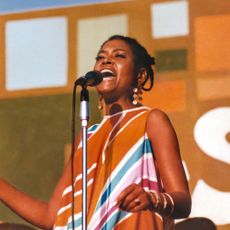 Documentaries About Black History to Educate Yourself With
Documentaries About Black History to Educate Yourself WithTake your allyship a step further.
By Bianca Rodriguez Published
-
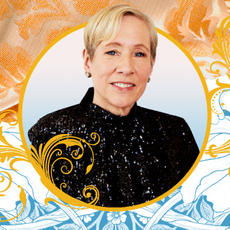 Almost Famous
Almost FamousHalf of the Shondaland dream team, the woman whose work brings 'Bridgerton' to life, is one of the most influential producers in Hollywood. And she’s ready for everyone to know it.
By Jessica M. Goldstein Published
-
 Payal Kadakia Is Finally Sharing Her Secret Sauce to Success
Payal Kadakia Is Finally Sharing Her Secret Sauce to SuccessIn her new book, LifePass, the ClassPass founder gives you the tools to write your own success story.
By Neha Prakash Published
-
 The Power Issue
The Power IssueOur November issue is all about power—having it, embracing it, and dressing for it.
By Marie Claire Editors Published
-
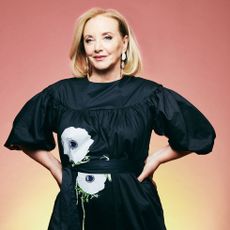 J. Smith-Cameron Is in Control
J. Smith-Cameron Is in ControlShe’s Logan Roy’s right hand. She’s Roman’s ‘mommy girlfriend.’ And she’s a fan favorite. Here, the Succession star takes us behind the scenes of Gerri’s boardroom power plays.
By Jessica M. Goldstein Published
-
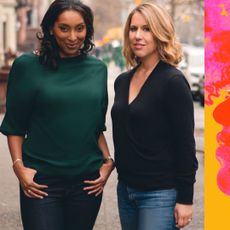 In 'We Are Not Like Them' Art Imitates Life—and (Hopefully) Vice Versa
In 'We Are Not Like Them' Art Imitates Life—and (Hopefully) Vice VersaRead an excerpt from the thought-provoking new book. Then, keep scrolling to discover how the authors, Jo Piazza and Christine Pride, navigated their own relationship while building a believable world for Riley and Jen—best friends, one Black, one white, dealing with the killing of an unarmed Black boy by a white police officer.
By Danielle McNally Published
-
 Love Has Lost
Love Has LostQuasi-religious group Love Has Won claimed to offer wellness advice and self-care products, but what was actually being dished out by their late leader Amy Carlson Stroud—self-professed “Mother God”—was much darker. How our current conspiritualist culture is to blame.
By Virginia Pelley Published
-
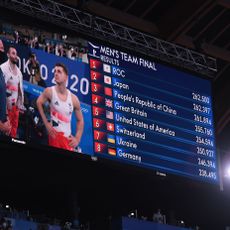 What Does "ROC" Mean at the Tokyo Olympics?
What Does "ROC" Mean at the Tokyo Olympics?It's a temporary workaround in the aftermath of Russia's massive doping scandal.
By Katherine J. Igoe Published